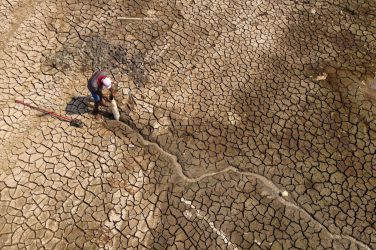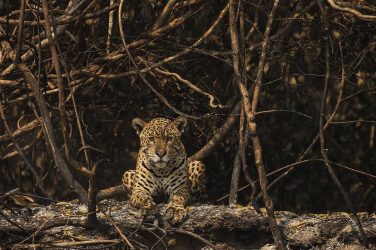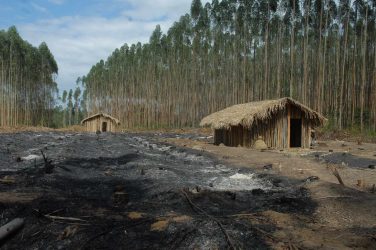On May 29 the NGO SOS Mata Atlântica and the Instituto Nacional de Pesquisas Espaciais released their annual report on the Atlantic Forest with some worrying results. The report shows that between 2015 and 2016, more than 29,000 hectares (71,660 acres) of native forests were lost. That’s a 57.7 percent increase over the previous year.
The study is based on satellite images from the 17 Brazilian states that are home to Atlantic Forest extensions. The methodology used allowed for the exclusion of industrial plantations, such as eucalyptus monocultures, which occupy long extensions of the Atlantic Forest area, as well as to identify losses as small as three hectares.
Almost three quarters of Brazil’s population live in the Atlantic Forest area. Centuries of colonization and development have dramatically reduced its range, which today extends over less than 15 percent of its original extension. Despite this, it is one of the world’s biodiversity hotspots, and hosts many endemic and endangered species.
SOS Mata Atlântica has been monitoring the Atlantic Forest since 1985. Over that period more than 1.9 million hectares of forests have disappeared. Reports were initially published every five years but since 2011 they became annual. Compared to the historical series, this years’ figures are the worst of the decade.
An Uneven Situation
Although all but one of the 17 states showed some degree of deforestation, four of them accounted for 90 percent of all losses.
With more than 12,000 hectares cleared and four of the top five municipalities with the highest losses, Bahia was the most affected state. Minas Gerais, the state that had topped the list in the nine last reports, came out second this time with 7,410 deforested hectares. These two states combined were responsible for 68 percent of this year’s deforestation.
The figures are also worrying in the state of Paraná, third on the list, which lost 3,453 hectares of forests, a 74 percent increase over last year. Most of the losses were in the region that hosts the last forests of Paraná pine (Araucaria angustifolia), a tree species listed by the IUCN as Critically Endangered.
The state of Piauí, with 3,125 hectares, ranked fourth, while the rest of states registered losses below 1,000 hectares.
Causes
In 2015, the Environment Secretaries of the 17 states over which the Atlantic Forest extends signed a letter in which they committed to completely abolish illegal deforestation by 2018. Although the new report does not discriminate between legal and illegal logging, Mario Mantovani, director of Public Policies at SOS Mata Atlântica, says that most of the 29,075 hectares lost are likely to be illegal.
“The Atlantic Forest is the only biome in Brazil that has a specific law, and deforestation is only allowed for public use or social interest,” Mantovani said. “If some of it is legal, it’s certainly a very small percentage.”
In the state of Minas Gerais, logging for coal and replacement of native forests with eucalyptus plantations are some of the causes of deforestation, according to the press release issued along with the report. Silviculture was also listed as an important factor of deforestation in Bahia.
Mantovani believes that recent changes in the federal legislation prompted a sense of impunity which is partly responsible for the current situation.
“Deforestation increased due to the new Forest Code, which was passed by the rural bench [the parliamentary lobbying group for agribusiness],” Mantovani said. “They created a slew of mechanisms to pass amnesties, to decrease protection for watersprings and river margins… everybody thought they could do whatever they wanted in Brazil regarding deforestation.”
According to Mantovani, one of the keys to turning the situation around is to increase the involvement of the population in the management of the forest.
“According to the law, municipalities of the Atlantic Forest can create a plan to define what they want to do with their forests: promote tourism, create groundwater recharge areas for water supply, protect them,” Mantovani said. “It’s a responsibility that needs to be shared.”
Ignacio Amigo is a freelance journalist based in São Paulo, Brazil. You can find him on Twitter at @IgnacioAmigoH.
This article appeared originally in Mongabay – https://news.mongabay.com














